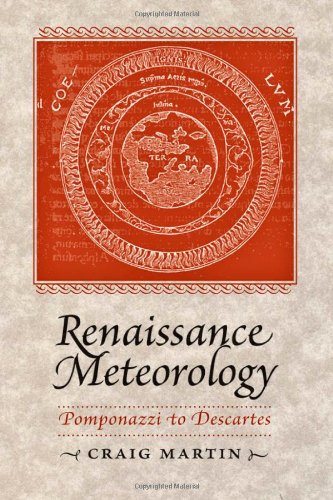

Most ebook files are in PDF format, so you can easily read them using various software such as Foxit Reader or directly on the Google Chrome browser.
Some ebook files are released by publishers in other formats such as .awz, .mobi, .epub, .fb2, etc. You may need to install specific software to read these formats on mobile/PC, such as Calibre.
Please read the tutorial at this link. https://ebooknice.com/page/post?id=faq
We offer FREE conversion to the popular formats you request; however, this may take some time. Therefore, right after payment, please email us, and we will try to provide the service as quickly as possible.
For some exceptional file formats or broken links (if any), please refrain from opening any disputes. Instead, email us first, and we will try to assist within a maximum of 6 hours.
EbookNice Team

Status:
Available5.0
8 reviewsCraig Martin takes a careful look at how Renaissance scientists analyzed and interpreted rain, wind, and other natural phenomena like meteors and earthquakes and their impact on the great thinkers of the scientific revolution.
Martin argues that meteorology was crucial to the transformation that took place in science during the early modern period. By examining the conceptual foundations of the subject, Martin links Aristotelian meteorology with the new natural philosophies of the seventeenth century. He argues that because meteorology involved conjecture and observation and forced attention to material and efficient causation, it paralleled developments in the natural philosophies of Descartes and other key figures of the scientific revolution.
Although an inherently uncertain endeavor, forecasting the weather was an extremely useful component not just of scientific study, but also of politics, courtly life, and religious doctrine. Martin explores how natural philosophers of the time participated in political and religious controversies by debating the meanings, causes, and purposes of natural disasters and other weather phenomena.
Through careful readings of an impressive range of texts, Martin situates the history of meteorology within the larger context of Renaissance and early modern science. The first study on Renaissance theories of weather in five decades, Renaissance Meteorology offers a novel understanding of traditional natural philosophy and its impact on the development of modern science.